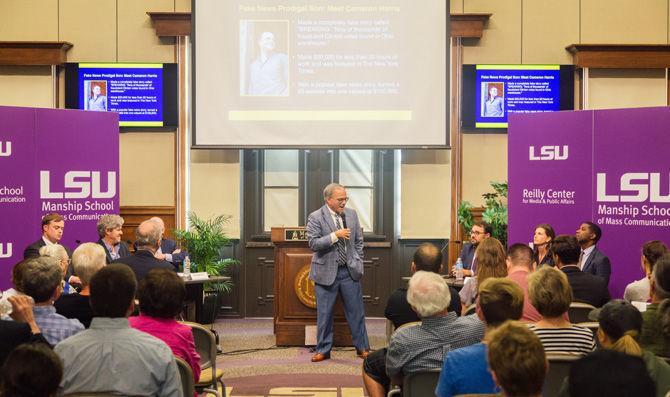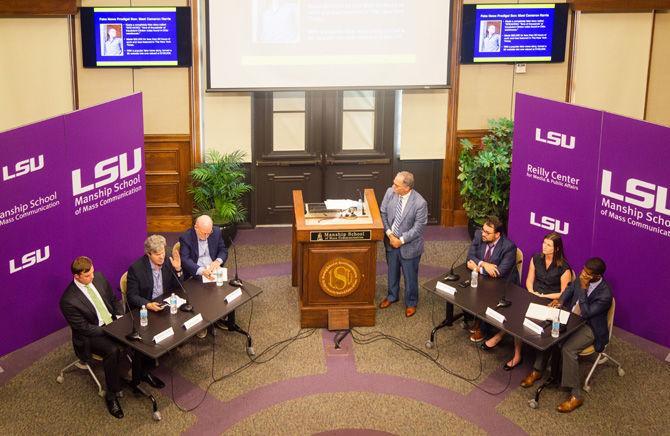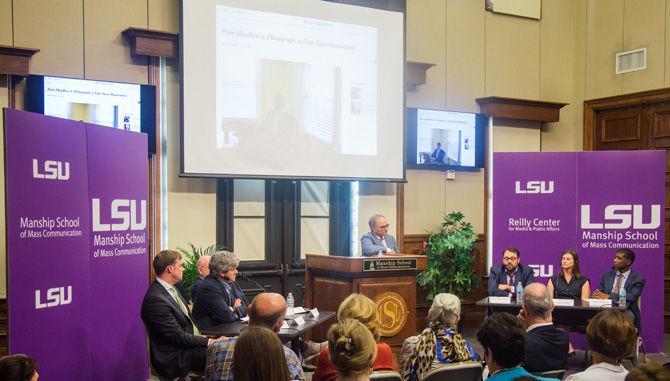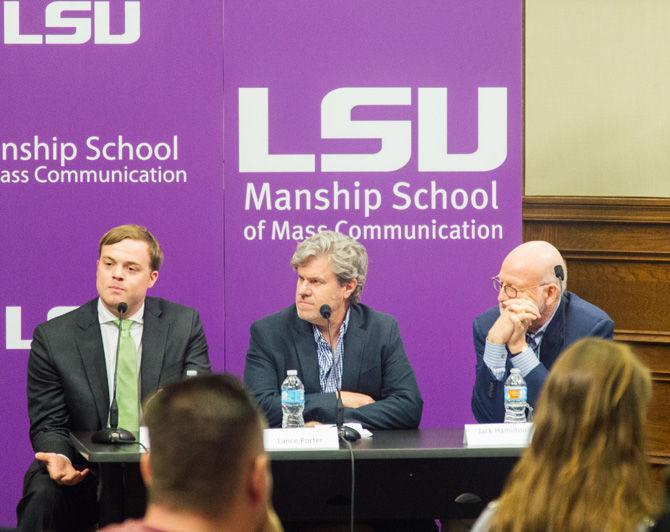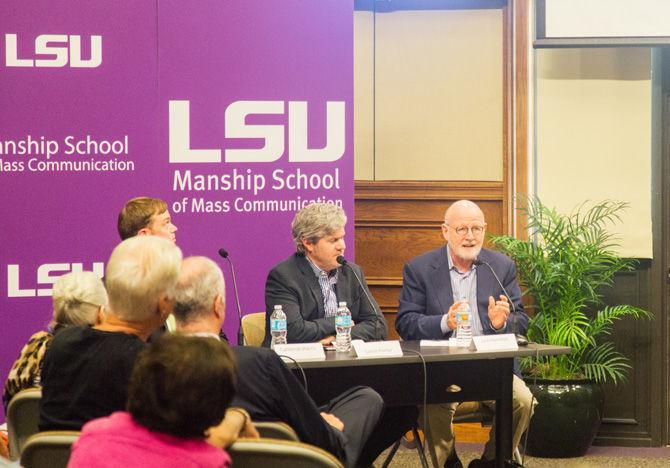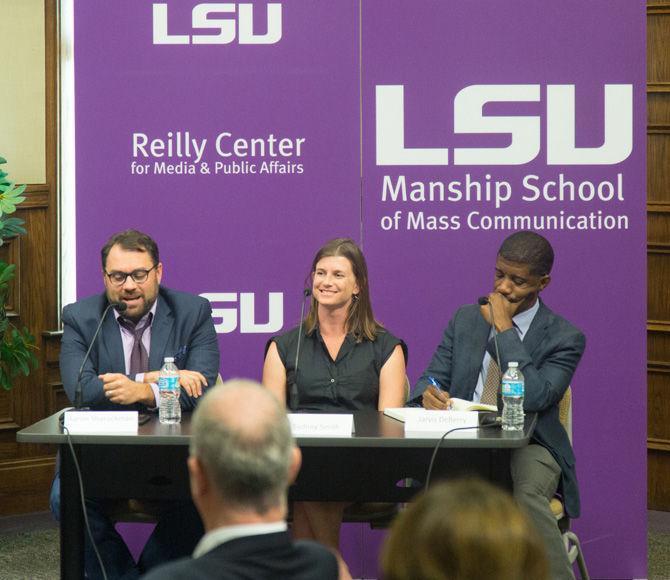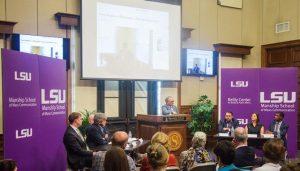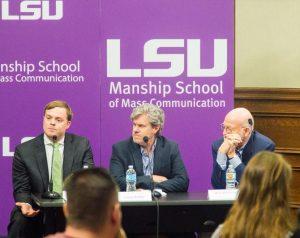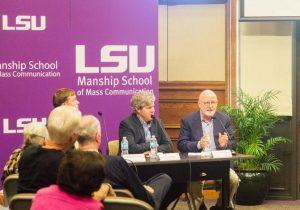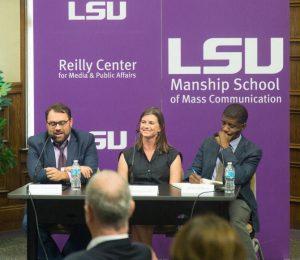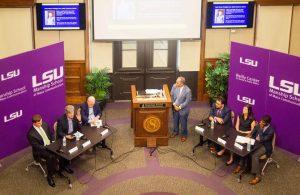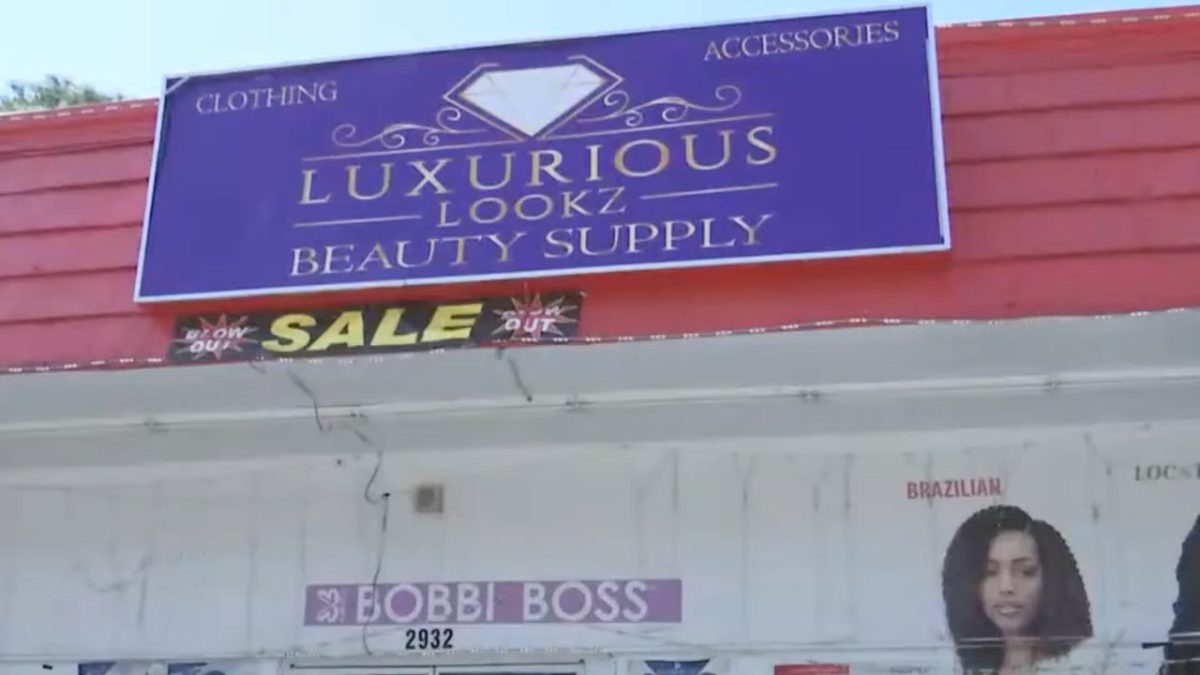Since its beginning prevalence in the 2016 U.S. Presidential Election, fake news has been an often misunderstood, controversial and difficult issue to tackle.
The University’s Manship School of Mass Communication, Geaux Vote LSU and the Reilly Center for Media and Public Affairs hosted a panel with media experts to discuss the issue of fake news on April 17 in the Holliday Forum.
Len Apcar, Wendell Gray Switzer Jr. Endowed Chair in Media Literacy and former New York Times senior editor, moderated the event.
He said the term “fake news” has been difficult to define and has been misappropriated, misapplied and misunderstood. Contrary to what many people believe fake news to be, Apcar said fake news includes inaccurate stories published strictly for profit.
The first panelist, Cameron Harris, made a fake story titled “BREAKING: Tens of thousands of fraudulent Clinton votes found in Ohio warehouse” in 2015. He made over $20,000 for about 20 hours of work and was featured in the New York Times.
Harris said he wanted to be part of the discussion and use his story to help others better understand what fake news is and help solve the issue.
Through research, he has found as Americans polarize more and more politically, Americans’ opinion gaps narrow.
“[Social media and fake news] has a lot to do with something I’ve come to call ‘political tribalism,’ where it’s natural human tendency to want to identify with a group that’s like yourself,” Harris said. “We do it all the time. But increasingly in recent years, we’ve started identifying by political affiliation more and more.”
Another panelist, Lance Porter, professor and director of the Social Media Analysis and Creation Lab, said social media influences how people get their news content. He explained the concept of a “filter bubble” as the tendency for people to follow people like themselves and interact with stories they agree with. As a result, both fake news and real news stories begin to look the same on a news feed.
He said a person spends two hours a day using social media on average, and teenagers spend an average of nine hours per day on social media.
“Most people are accessing content through the apps, and that’s a whole different thing than sitting down and deliberately looking for something,” Porter said.
He said fake news was a natural evolution, and social media algorithms exacerbate the issue. Fake news is designed to fool the brain, and consumers will naturally evaluate accuracy when they see multiple sources share that same content, he said.
“The more outrageous and farther from the truth, the more it gets shared,” Porter said.
Aaron Sharockman, the fourth panelist, is the executive director at PolitiFact. He said the site has specialized in fact-checking politicians and pundits since 2007.
Sharockman said PolitiFact is attempting to address the issue of fake news, along with other organizations including FactCheck.org, Snopes, Associated Press and ABC News. Additionally, he said PolitiFact reached out to Facebook to help address the issue because Facebook plays an important role in the sharing of fake news.
“I think [journalists] have a shared responsibility to boost credible, valuable, objective information,” Sharockman said. “The growth of fake news and the in-fighting among journalists themselves has created a situation where a lot of people don’t trust [journalists]. And frankly, I can see why.”
He said getting to the financial aspect of fake news will help because the intent of fake news is profit.
Sydney Smith is the managing editor and senior reporter at iMediaEthics and served as another panelist.
iMediaEthics is a not-for-profit, non-partisan “watch dog” that looks into anything regarding media ethics, Smith said.
Smith said the issue with having less editorial oversight due to financial cuts to outlets means fake news spreads even faster. She said while the media is supposed to be the “gate-keepers” in politics, the media is not being watched themselves.
All the panelists agreed awareness and proper education about fake news is essential in addressing and eventually solving the issue. Additionally, the panelists encouraged promoting diversity and the willingness to research accuracy in consumed content.
“Read everything,” Harris said. “Things you don’t like, things you do like. See what people are saying. Try to filter through it all. Find out what you believe.”
The University’s Geaux Vote organization has created the website detectfakenews.com for information on detecting fake news.
“Faked Out” panel discusses detecting fake news with media experts
April 18, 2017
Manship School of Mass communication professor Len Apcar speaks during the “Faked Out” news panel on Monday, April 17, 2017 in the Holliday Forum.
More to Discover


